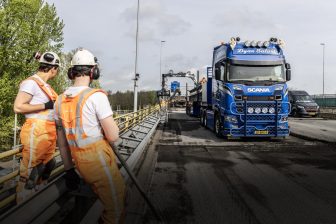Local Governments Best Bet Better Infrastructure
Manila, Philippines – Effective decentralization of services through local governments in the Philippines is key to responding to public needs and delivering services, such as health and local infrastructure. Many well-performing LGUs have already demonstrated that they are best placed to provide urgently needed public services. But improving local government performance across the board would require administrative actions in two key areas: enhancing Local Government Units’ (LGU) ability and capacity to raise their own revenues and access other resources; and strengthening key resource management systems and procedures processes, such as planning, budgeting, procurement, and financial and human resource management.
This was the conclusion of a report launched today, “Decentralization in the Philippines: Strengthening Local Government Financing and Resource Management in the Short Term,†a collaborative effort by the World Bank and the Asian Development Bank. The report focused on two facets of decentralization—sources of local government financing and the accountability of resource use.
The report noted that, more than a decade after the enactment of the landmark 1991 Local Government Code, surveys to assess satisfaction with public services point to mixed results of local government performance. On the one hand, a growing number of well-performing local governments emerged, demonstrating excellence in service delivery with their ability to access resources more effectively and manage them with greater transparency and accountability. On the other hand, local government investment in infrastructure and social services are constrained, and operations and maintenance expenditures curtailed.
“Some well-performing local governments can be considered islands of good governance which can inspire other LGUs to improve their effectiveness. This report shows practical actions, both at the
national and local levels that can lead to quick improvements in service delivery to the poor in all LGUs. Creation of an effective performance system would make it easier for the public to evaluate LGU performance results. The National Government can provide financial incentives and technical assistance to LGUs to improve their performance. The local government can increase their own resource mobilization, improve their planning and budgeting process, and further strengthen transparency and public participation,†said Joachim von Amsberg, Country Director for the World Bank in the Philippines. “Improved local service delivery can create a virtuous cycle—citizens receive services they value and in turn gain trust in public institutions and are more willing to pay taxes that further improve services,†explained Mr. von Amsberg.
“The current efforts supporting public fiscal consolidation provide a clear and relevant backdrop for the urgency of enhanced efficiency in the decentralization process,†said ADB’s Director General for Southeast Asia Operations, Shamshad Akhtar. “As a complement to the analytical report, ADB is coordinating closely with LGU stakeholders on several concrete initiatives. For example, ADB is working with NEDA under ongoing technical assistance for enhancing LGU capacity in their budgeting, financing, and expenditure activities. Support is being provided also for improving the capacity of National Government Agencies such as Department of Finance, Department of Interior and Local Government, and Land Bank to oversee implementation of more effective decentralization; to improve the attractiveness of LGUs to the capital market; to broaden LGU financing framework and skills to enable access to more market based financing mechanisms, including local currency municipal bonds as well as non-sovereign and non-recourse lending to LGUs that agree to adopt an aggressive and prudent fiscal framework; and to prepare better provincial poverty maps to allow more targeted support to the poor.†Ms. Akhtar said, “The large amount of support provided for analytical and prescriptive work now needs to be concretized through accelerated initiatives by Government and its partners. Only in this way will real traction be gained for more efficient service delivery.â€
The report recommended the following short-term actions to make decentralization work better:
• Raising local government access to credit by private financial institutions (PFI) by removing bottlenecks to PFI participation in LGU lending and rationalizing LGU grant policies.
• Increasing LGU own-source revenues through measures to increase collection of real property tax and business tax, and national government actions to assist LGUs.
• Making local government planning and budget management more effective, transparent and accountable through administrative measures by local governments, such as public disclosure of plans and budget documents, improved estimates of income, and greater civil society monitoring. The national government can also provide better guidelines, advice, and incentives to LGUs.
• Improving LGU procurement and financial management processes with actions to embed transparency and accountability within these processes, through measures such as public disclosure of procurement results, LGU financial accounts and COA audit reports, establishing LGU internal audit, and augmenting technical support capacity of the Bureau of Local Government Finance and the Commission of Audit.
• Initiating a review of the institutional arrangements for generating consensus among stakeholders on managing the decentralization process.
ADB, World Bank and other development partners have been working closely with Philippines stakeholders to strengthen the decentralization process. Over the past six months, a Working Group on Decentralization and Local Government, which includes national and local government representatives, non-government organizations, and multilateral and bilateral development partners, has been actively discussing key policy issues, such as decentralization framework, performance framework, capacity building, and LGU financing.
U las zojuist één van de gratis premium artikelen
Onbeperkt lezen? Profiteer nu van de introductieaanbieding voor € 10,- per maand.
Bent u al abonnee?




